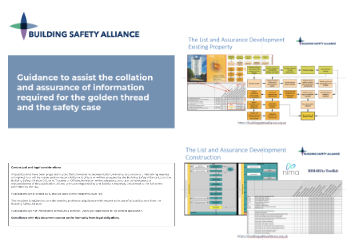Payment chain
In the construction industry, payment can be the source of a great deal of controversy. Not only are the sums involved very large, and the duration of projects very long, but the total amount payable tends to change over time. In addition, contractors, subcontractors and suppliers face considerable risk when pricing construction projects, and optimistic pricing or late payments can quickly cause cash flow problems.
As a result, payments are often the source of disputes which can ultimately lead to a breakdown in relationships and even project or business failure.
The supply chain is the interconnected hierarchy of supply contracts necessary to procure a built asset. On large or complex projects, responsibility and performance generally cascades down the supply chain to a plethora of suppliers sometimes unknown to management at the top of the chain.
The payment chain refers to the accounting practices adopted during these long-term and sometimes difficult construction projects to allow payments to filter down through the chain of contracts.
This extended chain can cause cash flow problems as one supplier may struggle to pay the next supplier in the chain until they themselves have been paid. In the past this resulted in 'pay when paid' provisions, that meant those at the bottom of the chain could wait many months before being paid for works they had undertaken.
However, the Housing Grants, Construction and Regeneration Act 1996 included provisions to ensure that payments are made regularly and promptly throughout the supply chain. This includes disallowing pay when paid clauses.
In addition, 'pay when certified' clauses are no longer allowed, and the release of retention cannot be prevented by conditions within another contract. So for example work contractors on a management contract project must have half of their retention released when their part of the works reach practical completion, not when the project as a whole reaches practical completion.
Suppliers have the right to suspend work for non-payment or to suspend part of the works and to claim costs and expenses incurred and extension of time resulting from the suspension.
See also: Down payment chain.
[edit] Related articles on Designing Buildings Wiki
Featured articles and news
International Electrician Day, 10 June 2025
Celebrating the role of electrical engineers from André-Marie Amperè, today and for the future.
New guide for clients launched at Houses of Parliament
'There has never been a more important time for clients to step up and ...ask the right questions'
The impact of recycled slate tiles
Innovation across the decades.
EPC changes for existing buildings
Changes and their context as the new RdSAP methodology comes into use from 15 June.
Skills England publishes Sector skills needs assessments
Priority areas relating to the built environment highlighted and described in brief.
BSRIA HVAC Market Watch - May 2025 Edition
Heat Pump Market Outlook: Policy, Performance & Refrigerant Trends for 2025–2028.
Committing to EDI in construction with CIOB
Built Environment professional bodies deepen commitment to EDI with two new signatories: CIAT and CICES.
Government Grenfell progress report at a glance
Line by line recomendation overview, with links to more details.
An engaging and lively review of his professional life.
Sustainable heating for listed buildings
A problem that needs to be approached intelligently.
50th Golden anniversary ECA Edmundson apprentice award
Deadline for entries has been extended to Friday 27 June, so don't miss out!
CIAT at the London Festival of Architecture
Designing for Everyone: Breaking Barriers in Inclusive Architecture.
Mixed reactions to apprenticeship and skills reform 2025
A 'welcome shift' for some and a 'backwards step' for others.
Licensing construction in the UK
As the latest report and proposal to licence builders reaches Parliament.
Building Safety Alliance golden thread guidance
Extensive excel checklist of information with guidance document freely accessible.
Fair Payment Code and other payment initiatives
For fair and late payments, need to work together to add value.
Pre-planning delivery programmes and delay penalties
Proposed for housebuilders in government reform: Speeding Up Build Out.
High street health: converting a building for healthcare uses
The benefits of health centres acting as new anchor sites in the high street.

























